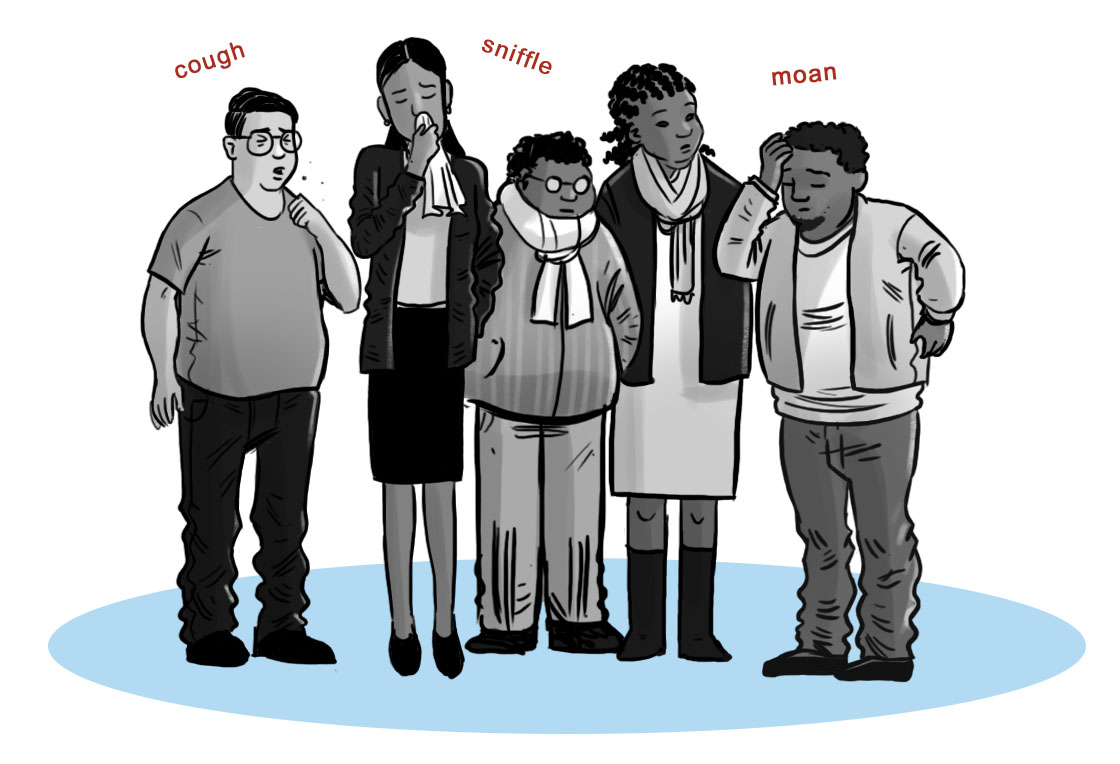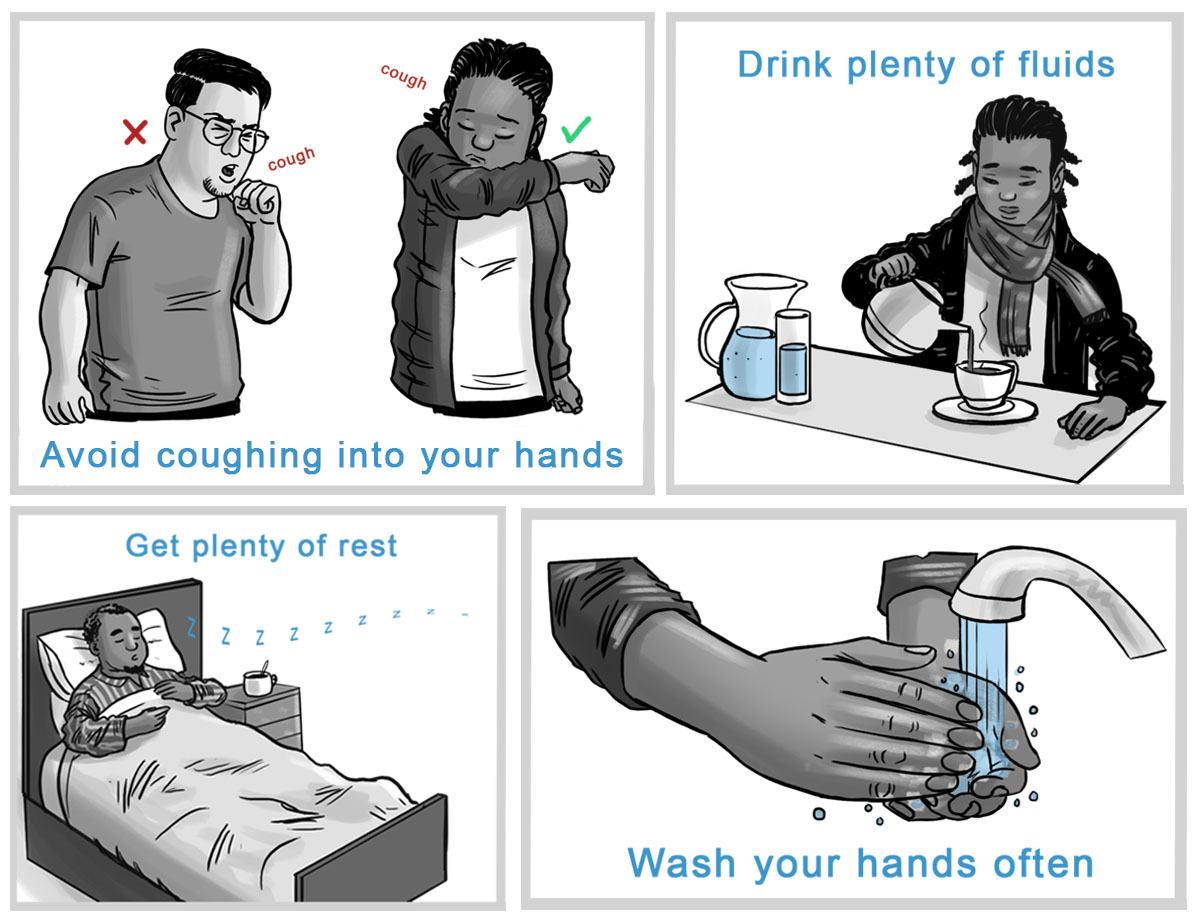It’s the Season for Colds and Flu


Illustration: Studio Woo
We have entered the flu season! Sister Dorothy Jonathan of UCT’s Student Wellness Service explains the differences between colds and flu and what you can do to prevent and treat these nasty conditions.
Seasonal flu is common every year amongst the student population and, according to statistics during winter, there is an increase in the numbers of students presenting with viral respiratory infections. By May 2017 at the start of the season, around 22% of all consults with the Wellness Centre’s clinical nursing staff were related to the respiratory system.
It is important to know the difference between the two types of viral respiratory upper tract infections – or colds and flu - so that they can be managed correctly. Both are respiratory illnesses but they are caused by different viruses. Because these two types of illness have similar symptoms, it can be difficult to tell the difference between them based on symptoms alone. In general, however, flu is worse than the common cold.
Cold or flu - how do you know which you’ve got?
|
The Common Cold |
Influenza (Flu) |
|
Symptoms:
Colds generally do not result in serious health problems and can be managed by the individual |
Symptoms:
Flu can have serious associated complications such as bacterial infections, pneumonia, bronchitis, etc. |
Now that you know, how do you manage the symptoms?
Prevention is always better than cure as there is no cure - only symptom relief. To help prevent colds and flu, get a flu vaccination at the start of winter. Flu vaccinations are available at Student Wellness Services every year.
|
Common Cold
|
Influenza (flu)
Warning signs are symptoms that indicate that the disease is becoming serious and needs immediate medical attention. These include:
|
Follow some of these basic measures to prevent and treat the symptoms:

Illustrations: Studio Woo
When to consult a medical practitioner
If any of the above warning signs appear, you should consult a medical practitioner without delay. Go to your private Health Provider or the UCT Student Wellness Service.
If you have a chronic medical illness (e.g. Diabetes Mellitus, Cardio Vascular problems, Asthma, and Immunosuppression) you’ll need to be extra careful. Flu Vaccination is particularly important for people who are high risk for serious flu complications.
UCT’s Student Wellness Service
Student Wellness is involved with the prevention, early detection and treatment of all health and psychological conditions. Their focus is to provide access to information on healthy lifestyles, empowering students to own their health and lifestyles by determining their needs and providing the necessary tools for wellness, for example clinics have information leaflets, and advice on what to do in the form of home remedies.
Contact Student Wellness on Tel: 021 650 1020 / 1017 or visit the Ivan Toms Building, 28 Rhodes Ave, Mowbray, Middle Campus.